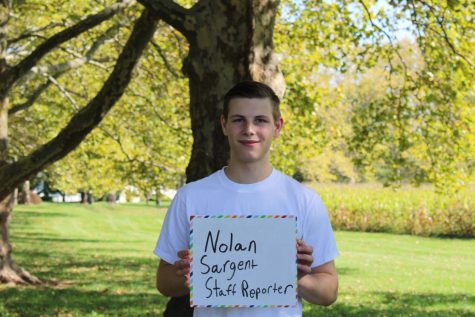Hookup Culture harms physical and mental health
“Hookup culture” is defined as a culture that encourages hooking up which entails brief, uncommitted sexual encounters between two people who are not in a romantic relationship.
Content warning: sex, sexual assault, rape culture
We live in an era of extensive sexual liberation. With loosening social norms and advanced communication technology, it’s easier than ever to find sexual partners, leading to the rise of the “hookup” in Western culture.
According to the American Psychological Association, hookups are brief, uncommitted sexual encounters between people who are not romantic partners or dating each other. The term “hookup culture” refers to a culture that accepts and encourages hooking up.
Sounds pretty nice, right? All of the pleasure and none of the effort of commitment. What could possibly be wrong with that?
Quite a bit, as it turns out. Hookup culture is harmful to individuals, harmful to society, and simply unethical.
Hooking up damages both the mental and physical health of the people who engage in it. According to the APA, a survey of 1,468 undergraduate students found that 82.6% reported negative mental and emotional consequences including embarrassment, loss of respect, and difficulties with maintaining steady relationships. Another study found that 78% of women and 72% of men who had engaged in uncommitted sex experienced regret afterward.
Furthermore, those who had engaged in hookup culture were found to have lower overall self-esteem scores than those who had not.
“I think that’s the worst thing about it,” one anonymous senior girl said. “It ruins people’s self-esteem.”
These effects are neither transient nor minor. According to the National Library of Medicine, both engaging in hookups and the number of hookup partners are related to greater symptoms of depression and anxiety. These are serious mental illnesses with potentially devastating— even deadly— consequences, not mildly inconvenient moods constrained to the morning after.
Many Southern Lehigh High School students are familiar with these feelings.
“It depends. On the one hand, it can make you feel very good,” one anonymous senior boy said. “Or it’s a really [awful] one and makes you feel incompetent or like you just don’t meet their needs. It can vary widely.”
This testimony is consistent with other accounts, both anecdotal and statistical. Emotions associated with hookups are typically mixed, and many individual instances have more positive than negative associations. These positive feelings, however, are often outweighed by the gravity of the negative feelings.
Hookups also blur the line in relationships, making it difficult for those involved to determine exactly what the relationship is. This causes confusion regarding expectations, which can lead to uncomfortable situations and inevitably results in emotional distress. As high schoolers, many of us have probably experienced this emotional distress firsthand, or at least have friends who have experienced it.
“It always goes pretty sour because they’re like, ‘oh, you just used me to be a ‘shawty,’’ when, in reality, it was a consensual conjoining of two hearts,” said the same anonymous senior boy. “They’re looking for something long term and sometimes the ‘Shawtynator’ doesn’t want long term. It’s natural; some people are just more clingy than others.”
While it may be gratifying in the short term, hooking up clearly leads to negative mental health outcomes in the long term.
Hookup culture has also led to a rise in rates of sexually transmitted disease. Unprotected sex is very common in hookups, with condoms being used in only 46.6% of instances, according to the APA. Hookup culture also heightens the risk of STD transmission due to “the increased likelihood of having multiple or concurrent partners,” according to the National Library of Medicine. Hookup culture does not only harm the mind, but poses a significant risk to the body as well.
Hookup culture is also detrimental to our society as a whole. According to the APA, research shows that people engage in casual, noncommittal sexual behavior despite being uncomfortable doing so, likely because it is perceived as the norm. In fact, one survey of college students found that 77.8% of unwanted sex occurred in the context of hookups. Hookup culture pressures people into harmful situations that they don’t even want to be involved in.
What’s even more concerning is that hookup culture can facilitate sexual assault and rape. According to the National Library of Medicine, hookups are uniquely associated with sexual violence. According to the APA, 7.6% of college students said that their most recent hookup was an experience they did not want to have or in which they could not consent. Hookup culture is the cousin of rape culture.
Setting aside the research and statistics, hookup culture is just plain unethical. Hookup culture encourages us to view the people around us as tools to be used for our own gratification. It reduces the other to a means to an end.
“It [makes] you feel like… not human, almost,” said the same anonymous senior girl. “You kind of just feel like an object.”
This is wrong, regardless of how good either person may feel in the moment. People are not objects, so they shouldn’t be treated as such.
The two most popular substantive arguments for hookup culture are that it enables the acquisition of self-knowledge through experimentation and that it is empowering, particularly for women. The self-knowledge argument holds some weight. The best way to determine one’s personal tastes and preferences is experimentation, with more experimentation yielding more precise results. However, this optimization of sexual pleasure is hardly worth the many drawbacks detailed above.
As a man, my ability to judge the empowerment argument is somewhat limited. Women often do report feelings of empowerment derived from hookups. Many women have also spoken out against hookup culture, however, so it is clear that this claim does not hold for all women.
Regardless of the veracity of the empowerment claim, this argument ultimately fails for the same reason as the other. Empowerment simply is not worth the negative consequences of hookup culture, especially when those consequences include the buttressing of a rape culture of which women are the primary victims.
Hookup culture is immoral and deeply harmful for everyone involved. As a society, we must reverse the trend towards casual, noncommittal sexual behavior before it is too late to save our minds and our bodies.

Senior Nolan Sargent is a first-year staff reporter for the Spotlight. He is the founder and president of Young Educators Club, vice president of the Class...



